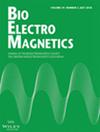求助PDF
{"title":"The Impact of Magnetic Field on Insecticide Toxicity Measured by Biological and Biochemical Parameters of Earias insulana (Boisd)","authors":"Hisham M. El-Bassouiny, Warda A. Z. El-Medany, Mervat A. A. Kandil","doi":"10.1002/bem.22418","DOIUrl":null,"url":null,"abstract":"<p>This study illustrates the effect of magnetic field (MF) on the toxicity of two insecticides, emamectin benzoate (Emazoate 2.15% EC) and spinosad (SpinTor 24% SC), and determines their adverse effects on the bollworm (<i>Earias insulana</i>) through various biological and biochemical assays. The investigation indicated that exposure to the insecticides in a MF of 180 mT resulted in stronger toxicity, with LC<sub>50</sub> values of 0.162, 1.211, and 1.770 ppm, respectively. In addition, the results showed that magnetized insecticides significantly increased in the duration of the total immature stages (larvae and/or pupae) 32.1 and 36.6 days, compared with 27.9 and 30.5 days, respectively, in the nonmagnetized insecticides, while untreated check was 21 days. Also, the magnetized insecticides reduced the percentage of adult emergence, and increased deformations in the larval and pupal stages. Furthermore, sex ratio was greatly affected by exposure to both insecticides in conjunction with the MF. Exposure of the larvae of <i>E insulana</i> to magnetized insecticides can bring about malfunction in some biochemical process and significantly decreased the invertase activity, and decreased the total protein and carbohydrates. In contrast, it can increase amylase compared with nonmagnetized insecticides and untreated controls. Results concluded that the two insecticides’ MF affected growth, survival time, and biological and biochemical parameters of <i>E. insulana</i>. © 2022 Bioelectromagnetics Society.</p>","PeriodicalId":8956,"journal":{"name":"Bioelectromagnetics","volume":"43 6","pages":"368-380"},"PeriodicalIF":1.2000,"publicationDate":"2022-08-05","publicationTypes":"Journal Article","fieldsOfStudy":null,"isOpenAccess":false,"openAccessPdf":"","citationCount":"0","resultStr":null,"platform":"Semanticscholar","paperid":null,"PeriodicalName":"Bioelectromagnetics","FirstCategoryId":"99","ListUrlMain":"https://onlinelibrary.wiley.com/doi/10.1002/bem.22418","RegionNum":3,"RegionCategory":"生物学","ArticlePicture":[],"TitleCN":null,"AbstractTextCN":null,"PMCID":null,"EPubDate":"","PubModel":"","JCR":"Q3","JCRName":"BIOLOGY","Score":null,"Total":0}
引用次数: 0
引用
批量引用
Abstract
This study illustrates the effect of magnetic field (MF) on the toxicity of two insecticides, emamectin benzoate (Emazoate 2.15% EC) and spinosad (SpinTor 24% SC), and determines their adverse effects on the bollworm (Earias insulana ) through various biological and biochemical assays. The investigation indicated that exposure to the insecticides in a MF of 180 mT resulted in stronger toxicity, with LC50 values of 0.162, 1.211, and 1.770 ppm, respectively. In addition, the results showed that magnetized insecticides significantly increased in the duration of the total immature stages (larvae and/or pupae) 32.1 and 36.6 days, compared with 27.9 and 30.5 days, respectively, in the nonmagnetized insecticides, while untreated check was 21 days. Also, the magnetized insecticides reduced the percentage of adult emergence, and increased deformations in the larval and pupal stages. Furthermore, sex ratio was greatly affected by exposure to both insecticides in conjunction with the MF. Exposure of the larvae of E insulana to magnetized insecticides can bring about malfunction in some biochemical process and significantly decreased the invertase activity, and decreased the total protein and carbohydrates. In contrast, it can increase amylase compared with nonmagnetized insecticides and untreated controls. Results concluded that the two insecticides’ MF affected growth, survival time, and biological and biochemical parameters of E. insulana . © 2022 Bioelectromagnetics Society.
磁场对岛田鼠(Earias insulana, Boisd)生物生化指标测定的杀虫剂毒性影响
本研究阐明了磁场(MF)对苯甲酸埃马菌素(Emazoate 2.15% EC)和spinosad (SpinTor 24% SC)两种杀虫剂的毒性影响,并通过各种生物学和生化试验确定了它们对棉铃虫(Earias insulana)的不良影响。结果表明,180mt浓度下的毒力较强,LC50值分别为0.162、1.211和1.770 ppm。结果表明,磁化杀虫剂可显著提高幼虫和(或)蛹总未成熟期(幼虫和/或蛹)的持续时间(32.1和36.6),而未磁化杀虫剂分别为27.9和30.5 d,未磁化杀虫剂则为21 d。磁化杀虫剂降低了成虫的羽化率,增加了幼虫期和蛹期的变形。此外,性别比受暴露于两种杀虫剂和MF的影响很大。磁化杀虫剂对岛叶蛾幼虫的某些生化过程产生干扰,使转化酶活性显著降低,总蛋白质和总碳水化合物含量降低。与未磁化的杀虫剂和未处理的对照相比,它能增加淀粉酶。结果表明,两种杀虫剂的MF均对岛芽孢杆菌的生长、存活时间及生物生化指标有影响。©2022生物电磁学学会。
本文章由计算机程序翻译,如有差异,请以英文原文为准。


